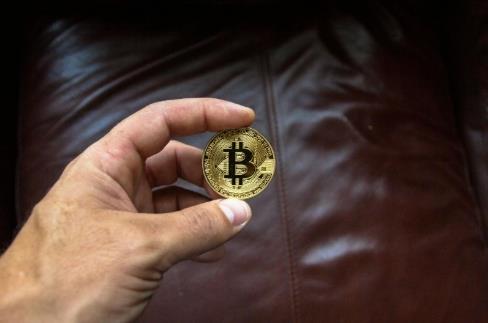
Can Crypto Solve Financial Insecurity in the Middle East?
(MENAFN) In parts of the Middle East, staying financially stable isn’t easy. Some people don’t have access to basic banking. Others deal with currencies that lose value overnight. Add rising costs and limited job security, and it’s no surprise many are looking for something (anything) that works better.
For many, crypto may be the answer. Some see it as a lifeline, but others see it as a gamble. Either way, it's already being used. The real question is whether it’s helping or just adding new problems to old ones.
Crypto Is Already Part of Global Industries
Cryptocurrency has already become a working tool across global industries. Big and small companies use it to move money faster, pay suppliers abroad, or protect earnings against unstable currencies. In the U.S., for instance, banks and dozens of startups are now conducting transactions in stablecoins.
The global entertainment space has embraced crypto even more openly. Online casinos, in particular, are leading the way. Transactions in Bitcoin, Ethereum, and Litecoin have become standard on many platforms. The best crypto gambling sites attract massive traffic because they offer faster withdrawals, better privacy, and reward systems.
Elsewhere, logistics and trade are undergoing a transformation of their own. In Singapore and Hong Kong, shipping firms use blockchain-backed crypto payments to pay suppliers instantly once deliveries are confirmed. Bit by bit, crypto is finding a place in the way work actually gets done.
Financial Barriers Across the Region
Access to stable banking is far beyond the reach of millions of people across the Middle East. In countries such as Egypt and Iraq, a large share of adults don’t have a formal bank account. Cash remains the main way to pay, borrow, and save, which leaves people exposed to risks that digital systems could easily reduce. When inflation goes wild or currencies depreciate, savings can be wiped out overnight.
Young people face the hardest road. Nations like Jordan and Lebanon lack job opportunities, and many graduates can't find jobs. Without the security of a steady income or reliable investment opportunities, the prospect of long-term stability seems distant.
Falling currencies make living day to day even worse. In countries such as Syria and Yemen, local currency has lost most of its value, and families are left without any other option than to rely on money sent by relatives living abroad. Yet sending that money home costs more than it should; fees can eat away at what little support remains.
The regulatory picture adds another layer of complexity. Some countries, such as the UAE, are developing frameworks that make the use of digital assets safer. Others have restrictions that leave the citizens confused about what is legal. Combine that with unreliable internet in rural areas, and it’s easy to see why progress feels uneven.
Crypto Might Fill the Current Financial Gaps
For many people in the region, digital currencies are filling the gaps that traditional banking leaves open. They allow people to send or receive money without a third party. A worker in Dubai can transfer money to Egypt or Pakistan within minutes.
Stablecoins, pegged to currencies such as the U.S. dollar, are becoming a place of refuge for people living in unstable economies. They provide a means by which value can be held without having to worry about sudden drops in exchange rates.
Humanitarian organizations have also begun to use blockchain systems for sending aid directly to recipients. In conflict zones, transparency is important, and blockchain helps ensure money reaches who it’s meant for.
Governments Finding Their Footing
Governments across the Middle East are taking careful steps, but are moving in the direction of crypto integration. Saudi Arabia is investing in pilot programs and regulatory sandboxes to learn how digital assets can fit into the financial system at large.
International pressure is a factor as well. Aligning with Financial Action Task Force standards helps regional governments attract investment and avoid sanctions, creating a more predictable environment for citizens and companies alike. Still, challenges remain. Effective regulation requires some skill, and public education is necessary to avoid scams.
Is Crypto the Answer?
It could be. The tools are there: faster money transfers, protection against shaky currencies, and new ways to build or move capital. For individuals who are locked out of the traditional banking system, crypto presents as something that's more accessible, more direct.
But it’s not the answer yet. The region still suffers from gaps in regulation, uneven internet access, and high levels of financial uncertainty. Without evaluating rules and better education and tech infrastructures, many of the risks remain in place. However, if governments pay attention to smart policy, if users remain informed, and if platforms are held to real standards, crypto just might grow into something more stable, something people believe in.
MENAFN25102025008444017689ID1110246086

Legal Disclaimer:
MENAFN provides the
information “as is” without warranty of any kind. We do not accept
any responsibility or liability for the accuracy, content, images,
videos, licenses, completeness, legality, or reliability of the information
contained in this article. If you have any complaints or copyright
issues related to this article, kindly contact the provider above.


















Comments
No comment